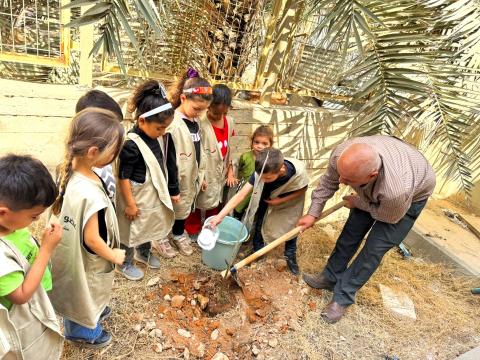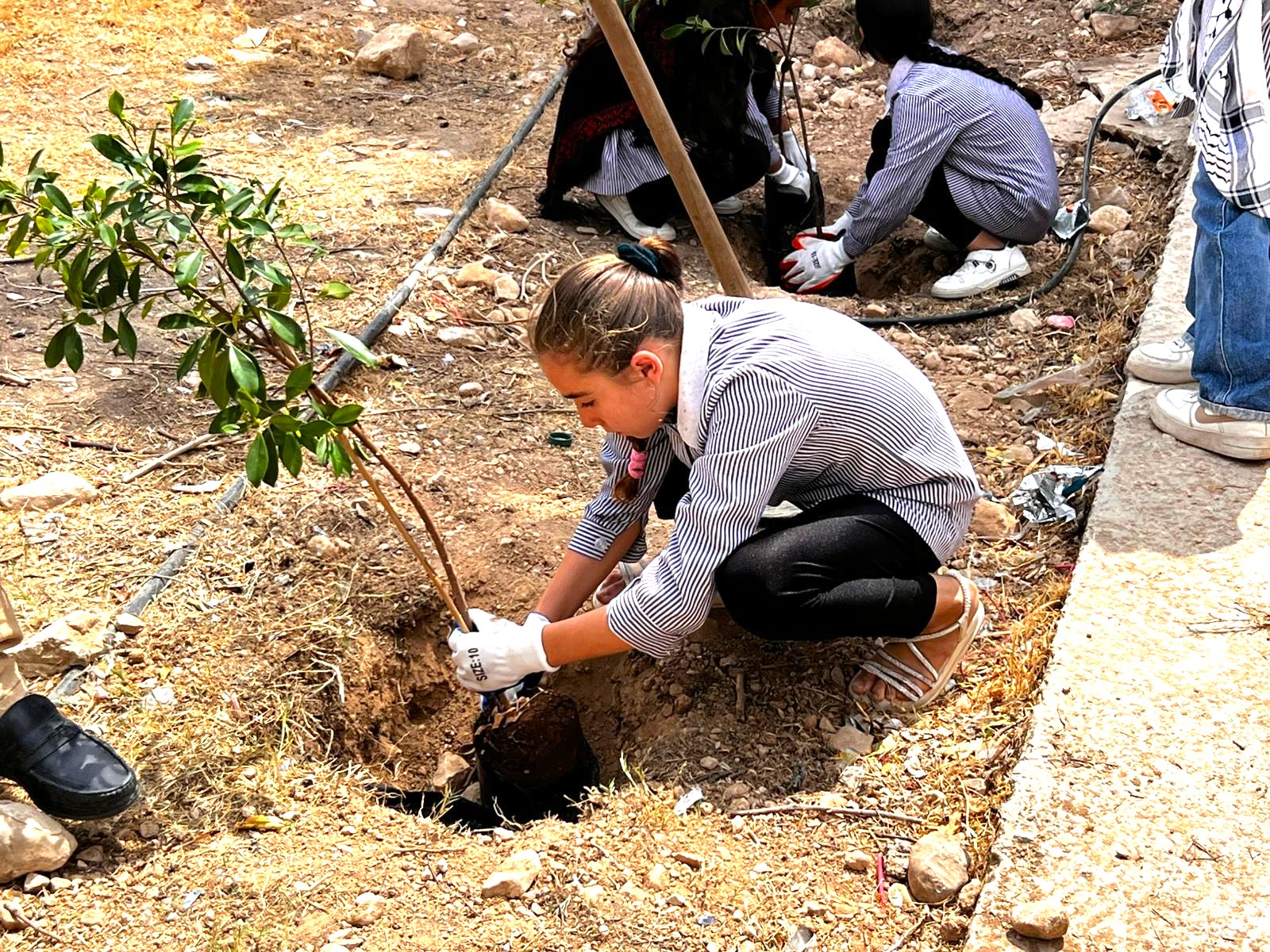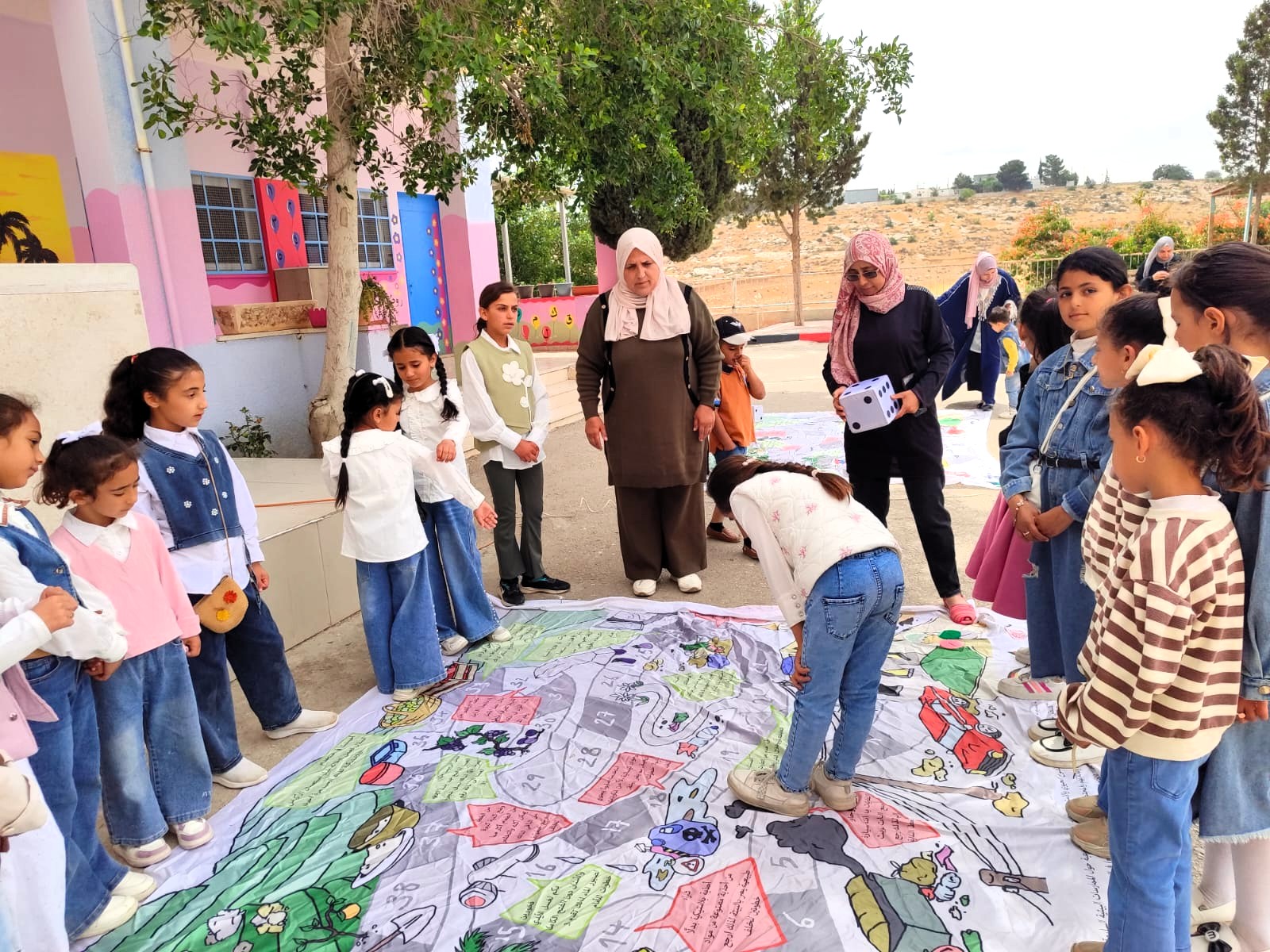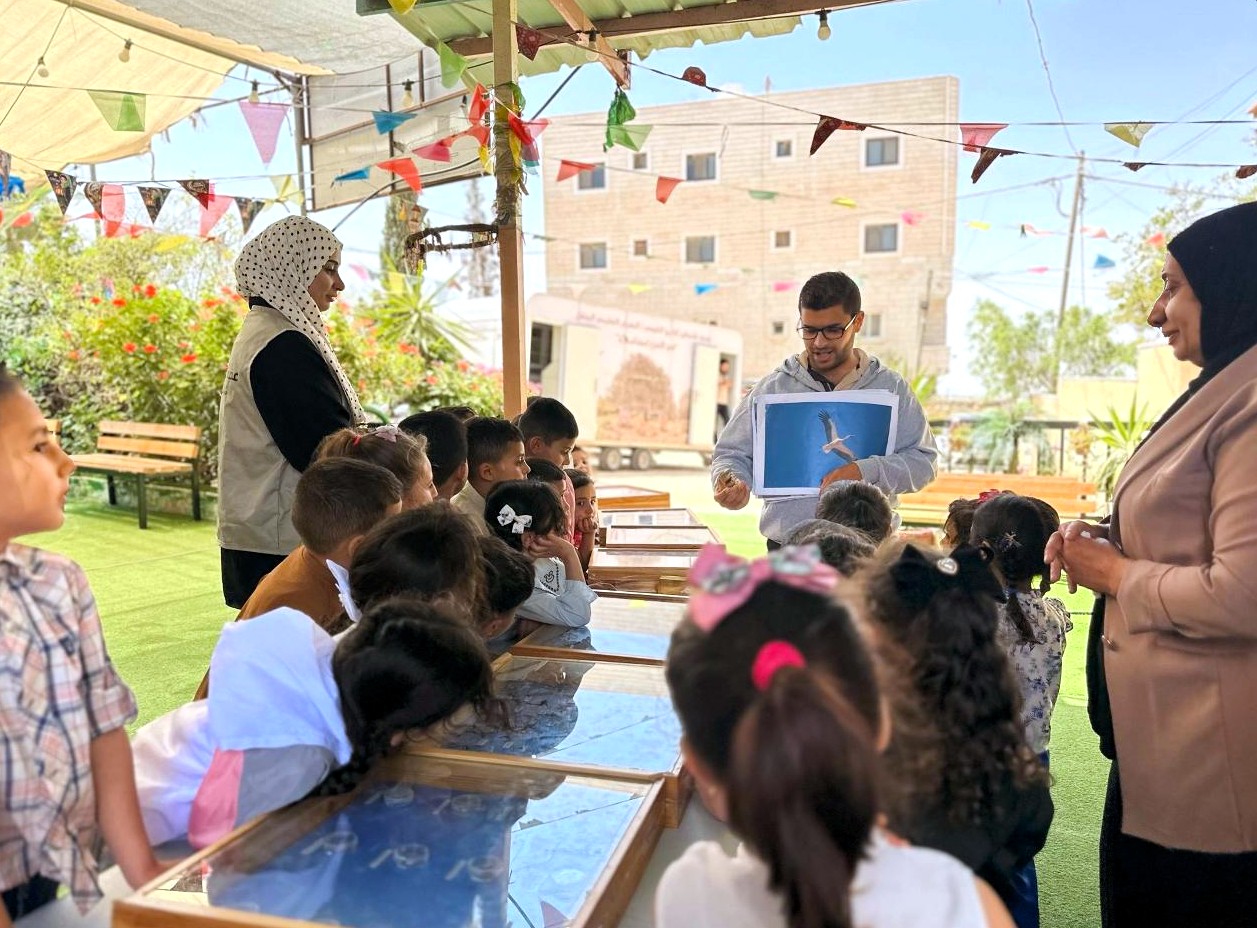In Harmony with Nature: Green Committees Champion Local Action for Biodiversity and Sustainable Development inthe West Bank

On World Biodiversity Day 2025, 40 communities across the West Bank are turning commitment into action to protect the environment and promote sustainable living. Through the Green Palestine: Promoting a Sustainable Environment for Children, Their Families, and Communities in Areas B and C of the West Bank project, local Green Committees are taking the lead in community-driven efforts to conserve biodiversity and build climate resilience.
Demonstrating a shared vision for a greener future, the Green Committees have:
- Planted 1,237 trees across local landscapes,
- Introduced 200 flowering plants to enhance pollinator habitats, and
- Cultivated a diverse array of herbal and medicinal plants in targeted areas.
In collaboration with the Palestine Institute for Biodiversity and Sustainability (PIBS) at Bethlehem University, the project also organized biodiversity exploration tours for children and their families. These immersive experiences offered participants the chance to connect with Palestine’s natural heritage and deepen their understanding of the importance of environmental conservation.

More than beautification efforts, these initiatives actively restore ecological balance, revive traditional environmental knowledge, and support the resilience of local ecosystems in the face of climate change. By prioritizing native and medicinal species, the project promotes sustainable practices that align with both environmental preservation and community well-being.
Inclusive and participatory by design, the project has engaged children, caregivers, schools, and local leaders through planting days and community-based environmental awareness campaigns that are sensitive to age and gender. “As members of the Green Committee, we work as a team and meet regularly to create action plans that improve our local environment. What makes our committee special is its diversity—it includes people of all ages: youth, adults, men, women, and children. This brings a variety of perspectives and ideas. Each member plays a specific role, whether it’s organizing events, engaging the community, or coordinating with local authorities,” Bushra, 20, from the northwest of the West Bank, an active member of her village’s Green Committee explains.
These efforts embed environmental values into daily life and foster a culture of stewardship from the ground up.“Communities threatened by climate change are best placed to identify and implement the solutions that will protect their children and their livelihood” said Saher Khoury, Project Manager at World Vision. “Empowering local leaders, especially women and individuals with disabilities, strengthens our collective ability to the vision of this project: resilient, environmentally sustainable communities across the West Bank."

This initiative stands as a powerful example of how local action can align with global sustainability goals—advancing ecosystem restoration, climate adaptation, and the creation of healthier, greener communities for future generations.
Led by World Vision and MA’AN Development Center, and funded by the German Federal Ministry for Economic Cooperation and Development (BMZ), the project is dedicated to strengthening the resilience of vulnerable communities in Areas B and C of the West Bank against the impacts of climate change and environmental degradation.
“The Green Palestine project isn’t just about the environment—it’s also an educational and life-changing experience. It helps our community understand the environmental risks we face and work together toward a greener, more sustainable future. Environmental initiatives don’t just benefit nature; they also help address economic, social, and health challenges linked to climate change. As young people, we play a crucial role in building a better future. And the work is far from over,” Bushra concludes.
The Palestinian territory remains among the world’s most climate-vulnerable regions, facing urgent environmental challenges including water scarcity, resource degradation, land contamination, and unsustainable land use. These conditions are intensified by limited sovereignty and financial constraints.
In this context, promoting environmental awareness and building local resilience are not just development priorities—they are essential to protecting the rights of Palestinian children to a safe, healthy environment.
